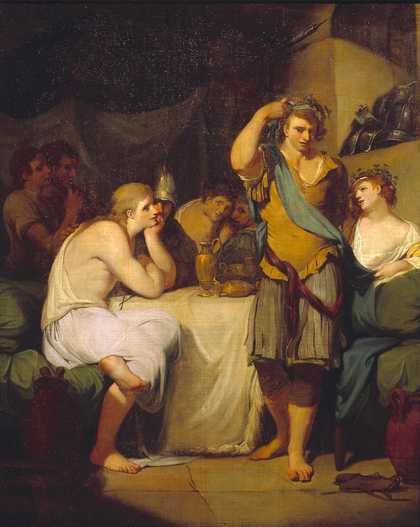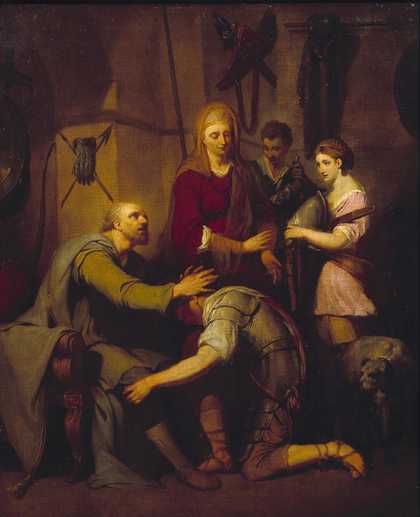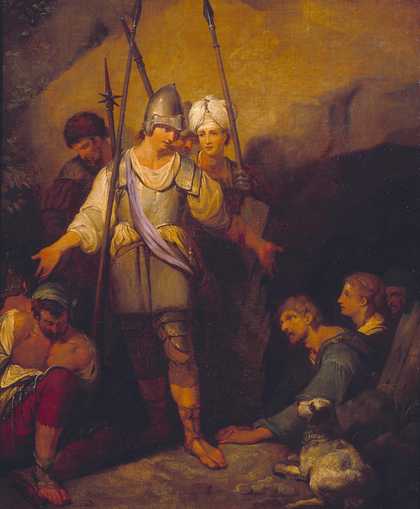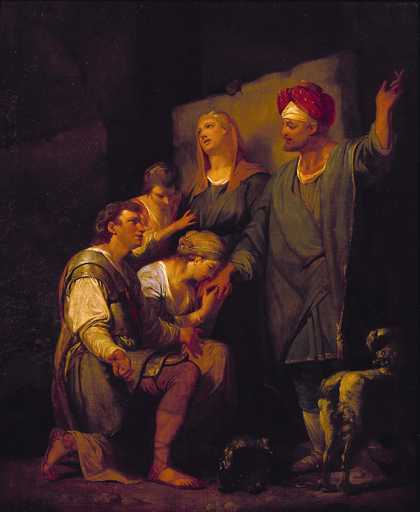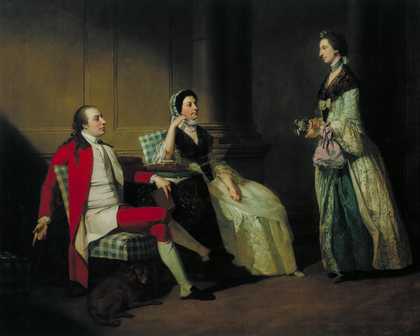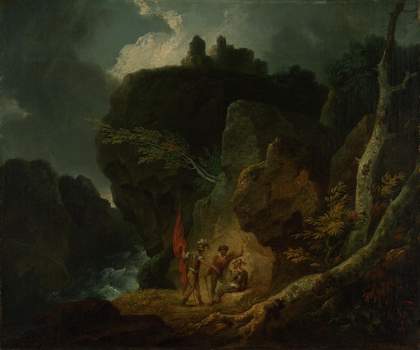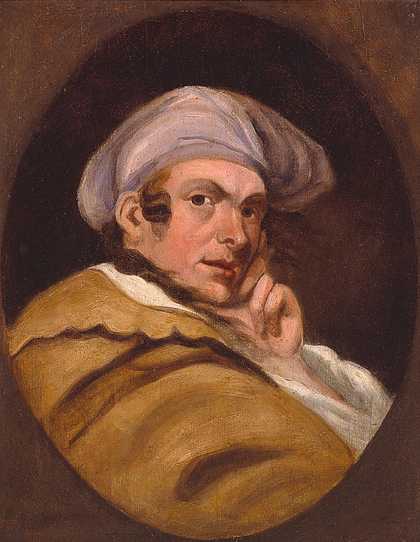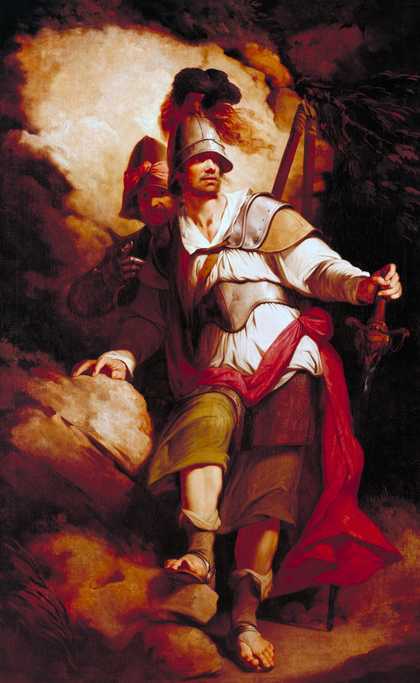Biography
John Hamilton Mortimer (17 September 1740 – 4 February 1779) was a British figure and landscape painter and printmaker, known for romantic paintings set in Italy, works depicting conversations, and works drawn in the 1770s portraying war scenes, similar to those of Salvator Rosa.[I]
Mortimer became President of the Society of Artists in 1774, five years before his death at age 39.
This biography is from Wikipedia under an Attribution-ShareAlike Creative Commons License. Spotted a problem? Let us know.
Read full Wikipedia entry

